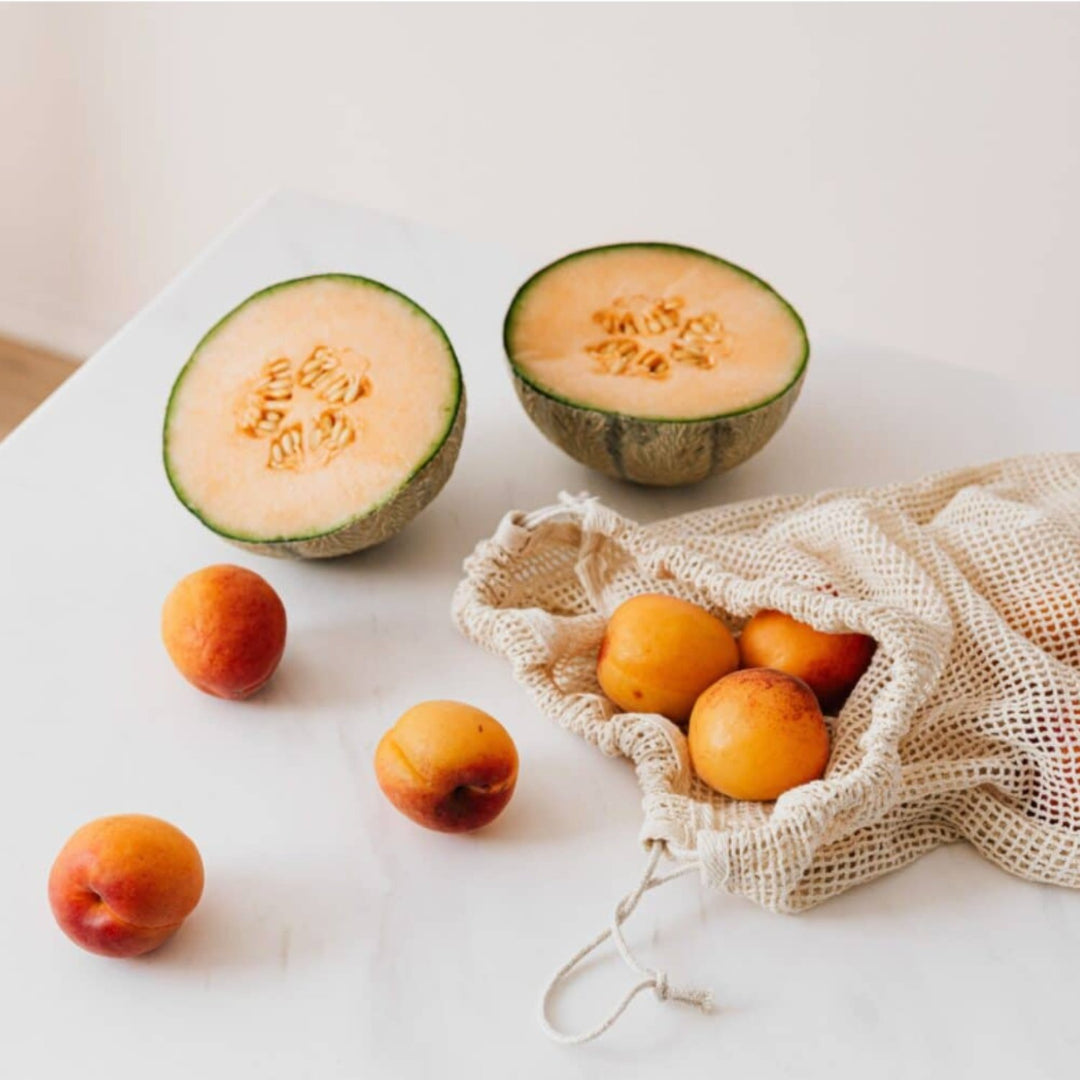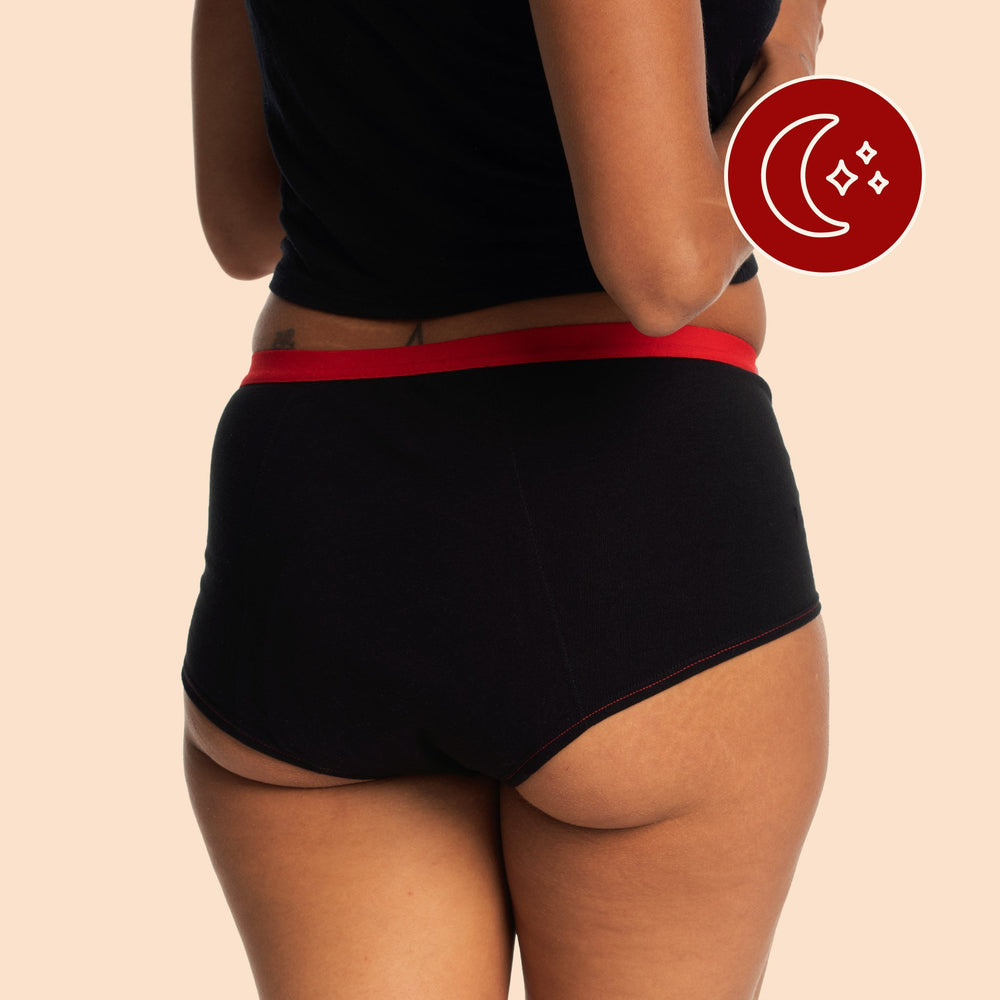
Menstruation and inclusion: an emerging concept
The current multitude of new vocabulary is breaking barriers to integrate the multiple dimensions and experiences of being a human being. However, are we the only ones who find that the discussion surrounding menstruation has remained somewhere in medieval times? How to bring together menstruation and inclusion?
Not only is menstruation still marked by persistent taboos (show me violence and blood galore, but hide menstrual blood),it is also widely associated with cis women, leaving in the shadows all other menstruating people.
Yet, every person deserves to live their menstruation in dignity and safety, in harmony with their body and mind. After all, we have our periods every month for almost 40 years, therefore it is better to open the discussion so that everyone can experience them with as much integrity as possible!
** I am writing this text from the perspective of a cis woman who is doing her best to broaden the dialogue on gender identity and menstruation. I do not claim to know everything about the experiences of trans and non-binary people, but I am interested in their reality in a search for inclusion, mutual understanding, and solidarity.
No, it's not just women who menstruate!
Now that the stage has been set, it's time to bridge the gap between gender and menstruation.
Surprise surprise: not all women menstruate, and menstruating people are not just women!
Yes, it is true that cis women represent the majority of menstruating people. However, trans men and non-binary people may also menstruate(if you are not familiar with the terms "trans" and "non-binary", click here). Indeed, some trans men choose not to have surgery and their me
nstrual cycle continue throughout their lives. For those who opt for testosterone, it does not guarantee the menstrual cycle will completely stop, and there is very little research on the impact of testosterone on the cycle according to the dosage prescribed and the brand used. As for non-binary people, it is quite possible that they do not identify with the female gender, or at least not entirely, but they still menstruate.
The topic of menstruation has historically portrayed it as a function of the female body that affects only women. Even today, our understanding of the menstrual cycle is often limited to monthly bleeding and its biological functioning, leaving aside the array of experiences and feelings associated with it. Trans and non-binary people then face this restricted view of menstruation, which makes their experiences often misunderstood or even ignored. This gender/sex duality generates a challenge to bodies and self-conceptions that deviate from norms.
To summarize, the gender identity of a human should not be confused with its biological attributes. A person may have a uterus and bleed every month, but not identify as a woman. On the other hand, a person can identify as a woman but not have a uterus and therefore not menstruate. A person may also have a uterus and not bleed (pregnancy, menopause, health problems, etc.) but that is another story. Are you following so far?

Menstrual branding and gender dysphoria
Of course, I'm not saying that the experience of menstruation is always rosy (and red) for cis women! No one is immune to menstrual insecurity or the stigma surrounding the menstrual cycle. However, trans and non-binary people have to deal with an additional layer of oppression, in a society where menstrual branding is often very gendered.
You only have to walk through the menstrual products aisle to see that the packaging of tampons, pads and menstrual protections is adorned with flowers, candy pink (the colour for girls as a prime example!), and all other representations socially considered "feminine".
What impact can gendered branding have? It can create in menstruating people who do not associat with the feminine a feeling of imposter, as if menstrual products were not designed for them. Yet these people need it as much as cis women to deal with their period in a healthy way! Not only do some trans and non-binary people feel that their menstruation should not happen (sometimes because of the gender dysphoria associated with it), but society keeps telling them this with advertisements.
Haaa and the famous gendered toilets! Let's talk about that. 
It can be a source of discomfort and anxiety for trans and non-binary people, especially during their menstruation (for those who have it). Already, in the toilets reserved for women, several women tear the packaging of their pad or tampon taking all the necessary precautions so that it is a top secret operation (well, we do not have this problem when we wear Mme L'Ovary, but you understand what I mean!). Imagine if you used the men's toilet... add to this is the problem of not knowing where to throw your used tampon because there are no garbage cans provided for this purpose, or the fear of dropping your menstrual cup on the floor.
The blood is still red, but the experience takes on various colours.
We all remember the first time we saw the famous brownish-red spot on our panties, like a flag signaling our entry into womenhood (this is how society sees the menarche, meaning the appearance of the first period). Some people remember this milestone as carrying a sacred energy, a pride in seeing their body evolve according to the seasons. For others, the memory of their first period touched on gender identity with which they don't identify.
While not all trans and non-binary people experience their periods in negative ways, it is important to emphasize that menstruation as a societal symbol of femininity can be an uncomfortable experience, and that the way gender dysphoria is experienced and felt is unique to each person.
For example, trans and non-binary menstruation people can sometimes avoid talking to their doctor because of the stigma of their gender identity, even if they have questions about their health. Some people choose to stay at home during their period, either because the feeling of dysphoria is too present, or to avoid any encounter that can trigger dysphoria. Imagine that every month, when you bleed, you feel as if your body betrays you. It is as if your body and your head were sending you contradictory messages and you had to reconcile them as well as you could. Exhausting, right?
Listen carefully! My goal is not to project a negative image of the menstrual cycle, far from it! There is something deeply beautiful about this central element of the life cycle. My goal is to shed light on the diversity of experiences of menstruation out of the cis normativity. Become aware that the menstrual cycle can be empowering for some people, and difficult to experience for others.
How to "un-gender" menstruation?
A big first step we can take is to neutralize the language used in conversations surrounding menstruation. Inviting inclusiveness into our daily lives begins with inclusive writing. For example:
- Stop talking about "women" and instead opt for "people who menstruate".
- We like neutral words like "everyone".
- Replace in our vocabulary "feminine hygiene products" with "menstrual products". First of all, because the combination of the terms "hygiene" and "menstrual" necessarily evokes that menstruation is dirty, which is far from being the case(#BrisonsLesTabousEncoreEtEncore). But also because the term "feminine" refers to the idea that menstruation is an exclusively feminine phenomenon, which is not the case either. In short, menstrual products, quite simply.
As you surely already know, at Mme L'Ovary, we are fascinated by the sacred feminine and the community that develops when we honour our feminine essence. Yes, we can continue to talk about sacred feminine, the creative power of the uterus, the spiritual dimension of menstruation. If this is what makes you feel comfortable and empowered, you can see your menstrual cycle as an intimate part of your femininity. That is perfectly OK! But it is essential to know that there are other realities and experiences related to femininity and menstruation, and to welcome them with benevolence.
Obviously, there has to be a change in the way we talk about menstruation. It does not mean denying the fact that menstruation is experienced by cis women, but to broaden the conversation and highlight the range of experiences. The more the collective image of menstruation is fueled by stories and narratives, the more people can align themselves with the version that makes them most comfortable.
The goal is not to be perfect
Again, the goal is not to be perfect (to be repeated regularly!).
Nor is it the intention to know all the terms related to diversity.
The goal is to cultivate our curiosity, to learn and to move forward on the path of inclusion in openness and kindness.
As an individual,we can open a dialogue with those around us. At our family dinners, we can simply say to aunt Janine who claims the uterus as the ultimate symbol of femininity that menstruation is not only for cis women.
Asking for a person's pronoun can also become a good habit to practice. For example: "Hello, my name is Gabrielle and my pronoun is her. How about you?" As simple as that!
As a company,we are committed to continuing to write more and more, to spread awareness and to learn every day. By destigmatizing menstruation for all, we can continue to fight for better access to menstrual products and free menstruation from the grip of taboos.
Finally, we believe that it is essential that discussions about the menstrual cycle are not only led by cis women. So, if you are a trans and/or non-binary person and you want to express yourself about your menstruation or the menstrual cycle in general, please write to us! If you feel called to share your ideas with us so that Mme L'Ovary is more inclusive or be invited to express yourself on gender identity or any other subject during one of our Red Table events, write to us too! We are constantly learning and our mission is simply to do better every day so that menstruation is experienced in a healthy and positive way by all menstruating people.
Thank you for helping us create a greener, more humane and fairer world. ♡
_________
Sources
Cass Bliss, Having your period when you are not a woman, 2018. https://www.huffingtonpost.fr/cass-bliss/avoir-ses-regles-quand-on-n-est-pas-une-femme_a_23511656/.
Dominique Dubuc (Sexual Orientations and Identities Committee), LGBTQI2SNBA+: The words of diversity related to sex, gender and sexual orientation,May 2017. https://fneeq.qc.ca/wp-content/uploads/Glossaire-2017-08-14-corr.p df.
Klara Rydström, Degendering Menstruation: Making Trans Menstruators Matter in The Palgrave Handbook of Critical Menstruation Studies, 2020. https://www.ncbi.nlm.nih.gov/books/NBK565621/.
Instagram profile of @leksendrine, https://www.instagram.com/p/COxtppxnbV3/.
Sadhbh O'Sullivan, Conversations About Periods Must Be About More Than Cis Women,2021. https://www.refinery29.com/en-gb/trans-non-binary-periods.
Sarah E. Frank, Queering Menstruation: Trans and Non-Binary Identity and Body Politics, 2020. https://onlinelibrary.wiley.com/doi/full/10.1111/soin.12355.























